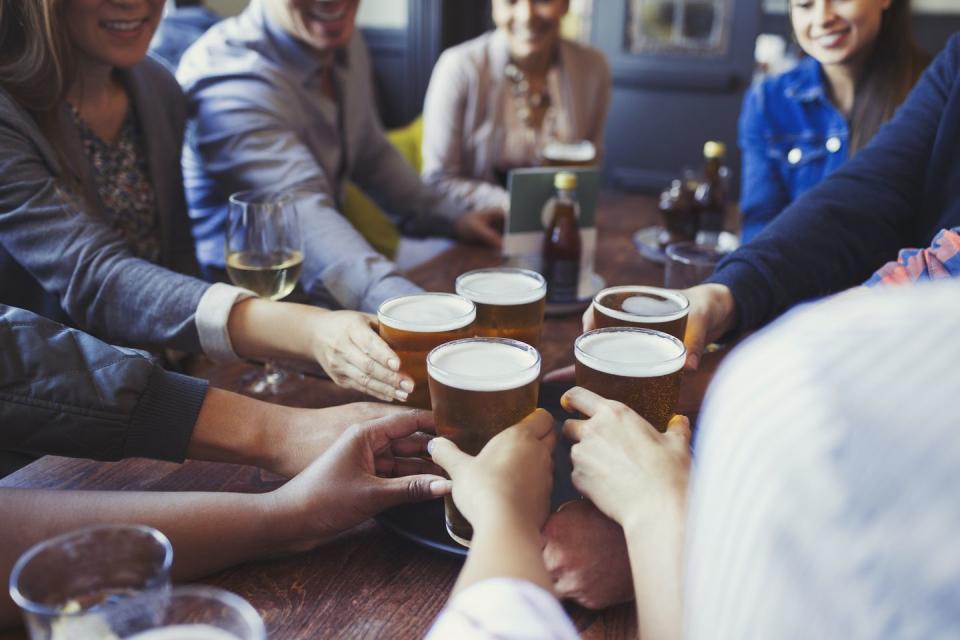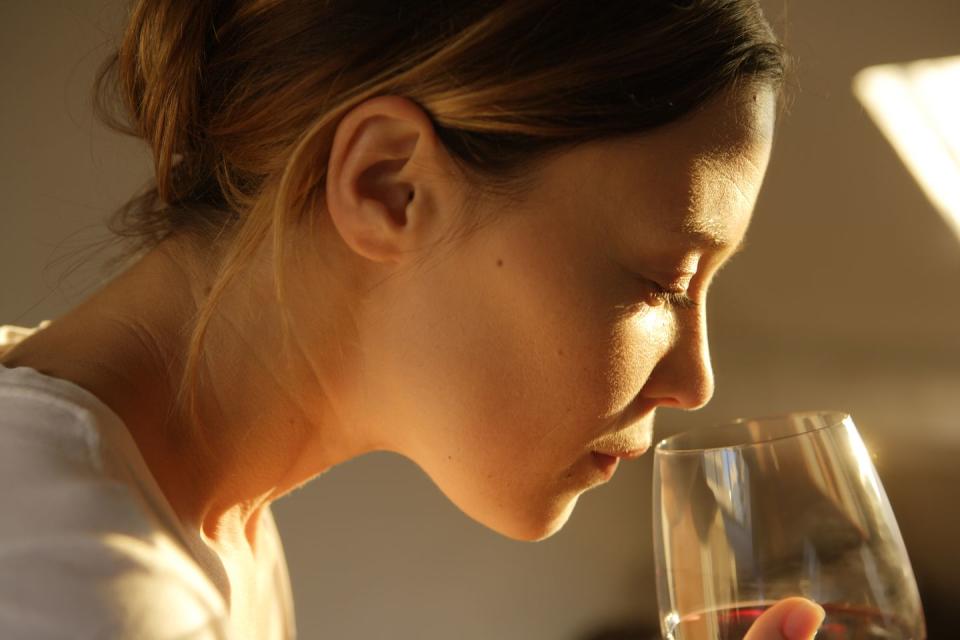Why you want to drink more alcohol when the weather gets colder and darker

A bottle of Merlot shared over a takeaway with a friend. A round of pale ales in the pub on a Saturday night. Several rum and cokes at a work Christmas party.
As the weather turns colder and the nights draw in earlier, people love nothing more than an excuse to crack open of a bottle of their favourite tipple and sink into the warmth of the sofa in front of the fire.
However, a new study claims that your penchant for drinking heavily in the winter could have a direct link to the seasons.
Research carried out by the Pittsburgh Liver Research Centre in the US has found a connection between average temperature, hours of sunlight and alcohol consumption.

The study, published online in the Hepatology journal, used data from 193 countries which provided evidence that colder climates contributed to a higher occurrence of binge drinking and liver disease.
'It’s something that everyone assumed for decades, but no one has scientifically demonstrated it,' Dr. Ramon Bataller, a professor of medicine at the University of Pittsburgh, wrote in a press release.
The researchers also used information from the World Health Organisation (WHO) and the World Meteorological Organisation.
The science behind it
You know that warm toasty feeling - commonly known among millennials as a 'beer jacket' - you get after a few glasses of alcohol?
Well, that's because alcohol is a vasodilator, meaning it relaxes blood vessels and increases the flow of warm blood to the skin.

As a result, the findings suggest that people reach for a glass of alcohol when it's cold outside to keep warm.
Shorter hours of sunlight and cooler temperatures are also related to higher rates of depression, which is well-known to be linked to an increase in drinking.
How does this affect me?
Unsurprisingly, Britain - with it's blistering cold weather at the moment - was listed among the countries which showed high levels of heavy drinking and low numbers of sunlight hours.
Meanwhile, Belarus - where sun is rarely seen from November until February - was named as the country with the highest levels of binge drinking. The average citizen consumes 17.5 litres of alcohol a year, according to figures.

Bataller told the Pittsburgh Tribute Review: "Knowing that colder places have more drink-related problems could be helpful to the efforts in these areas to determine better policies," he added. "If you have a genetic predisposition to alcohol abuse, maybe you should avoid super cold areas."
While binge drinking and liver disease are serious issues to be considered, drinking in moderation - on average 14 units of alcohol a week - has been claimed to reduce mortality risk and lower heart disease risks.
So, if you're going to order a glass of bubbly or G&T this season, here's our pick of favourite tipples you need to stock up on to keep warm this winter:
('You Might Also Like',)

